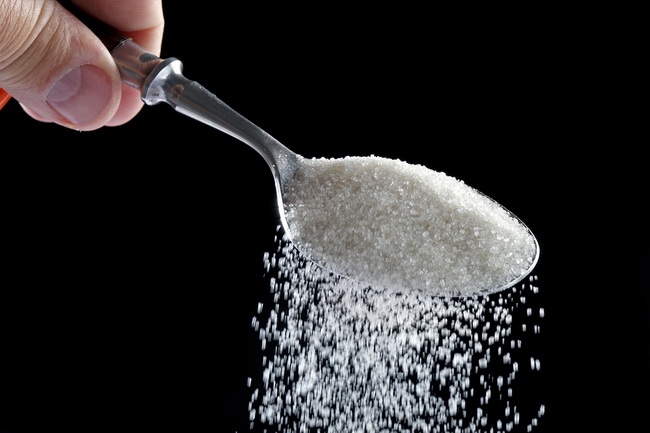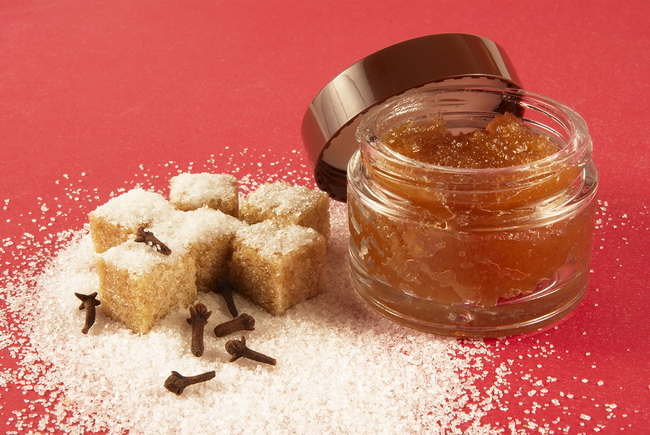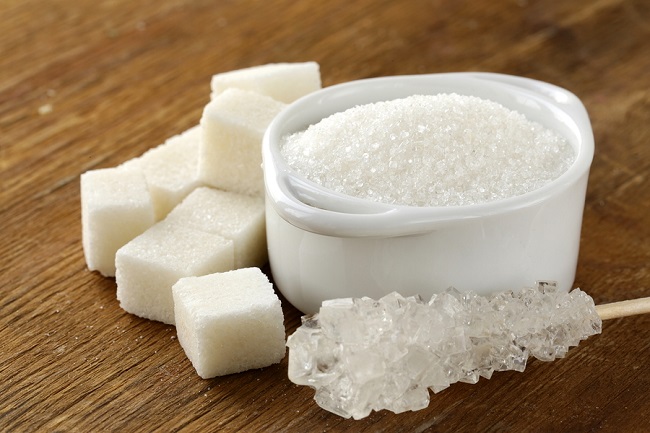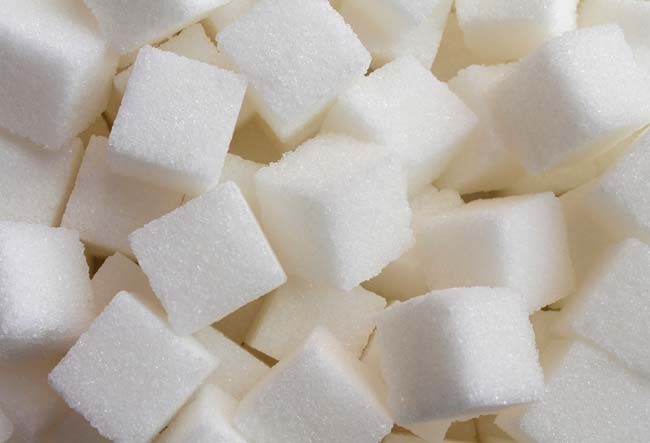- Make It Yourself Lavender Heart-Shaped Bath Bombs!
- 20 Things You Never Knew About “Down There”
- 12 Best Foods For Those Suffering From Arthritis Pain
- 12 Personal Hygiene Mistakes Almost Everyone Makes (Mom Never Told You About #4!)
- 15 Medicinal Plants And Herbs From The Cherokee People
- 12 Mind-Blowing Benefits Of Drinking Coconut Water During Pregnancy
- 12 Outstanding Winter Foods That Won’t Fatten You Up Like A Christmas Turkey
The Truth about Sugar Addiction and What Happens When You Quit

Photo credit: bigstock.com
You probably know someone who is a sugar addict. Maybe you are one. If so, then you already know how very real this addiction can be. Some people laugh and say that it’s not like its cocaine or anything, but the truth is, sugar addiction is very much like addiction to a hard drug.
In science, food is a natural reward. This makes sense when you consider our evolution. In order to survive and stand as a species, people need things such as having sex, nurturing each other, and eating, which should not only be available, but also pleasurable if these kinds of behaviors are to be repeated.
Now enter mesolimbic pathways. This is the brain’s system that translates these rewards for us. In cases when we do different things which satisfy as well as give us pleasure, certain neurons via neurotransmitter dopamine tell the brain in our prefrontal cortex to make a decision such as getting a helping of particular food or having sex again with the same person. These hormones also tell our brain “This was really good. Let’s remember this next time around.”
Of course, different foods have different rewarding impact on the same people, which is why some people prefer sweet over sour. This is because the mesolimbic pathway approves and reinforces the thought that sweet food is good because sweet is usually a good source of carbs. For example, when picking berries, sour implies ‘not ripe’ and bitter generally means ‘poison.’
Unfortunately, today’s diets seem to have taken on a virtual life of their own. Ten years ago, the average American consumed 22 teaspoons of sugar (we are referring to added sugar, not natural sugar such as what is found in fruit) each day, which is about an extra 350 calories. The average American now consumes more than 34 teaspoons of sugar each day.
Many people rely on convenience foods more than ever before due to our hectic schedules. This makes it almost impossible to consume foods that contain no added sugars. Since sugar is hidden in almost everything from ketchup to soup, some of us have become sugar addicts even if we never touch a candy bar and we are completely unaware of it.
Illegal, addictive drugs such as cocaine and heroin hijack your brains reward pathway and make users dependent on them. Sugar is very much the same and increasing neuro-chemical and behavior evidence proves it.
Continue to Page 2

Photo credit: bigstock.com
Quitting Sugar
Most people will tell you that the first days of quitting sugar are the hardest. Many people describe the physical and mental sensations as very similar to withdrawal from other addictive drugs. The components of addiction include bingeing, withdrawal, craving, and cross-sensitization (meaning that you substitute another item for your addiction: for example, you might begin to binge on carbs or salty foods when you crave sugar). The same components were noticed in animal studies for addiction of all types, whether it be cocaine or sugar.
SEE ALSO: How to Give Up Sugar in 9 Steps
For example, in one study, rats were deprived of food for 12 hours out of every day. The other 12 hours they are given access to either regular food or sugary foods. After 30 days of this process, the rats were binging on sugar for most of their eating hours, much more so than their regular food. During the 12 hours of food deprivation, the rats showed signs of depression and feelings of anxiety. Later, the sugar fed rats were given addictive drugs, such as opiates and cocaine. These rats also showed the exact same dependent types of behavior towards the drugs they were given when compared to the rats in the control group who did not receive sugar.
Sugar spikes a release of dopamine into the nucleus accumbens of the brain, very much the same way drugs do. In other words, repeated consumption of sugar leads to prolonged signaling, thus exciting the brain’s reward pathways and creating a need for more and more sugar to make all the dopamine receptors active. Sugar works the same way drugs do in that the brain builds up a tolerance to sugar and will require more and more to achieve the same “sugar high” feelings.
Princeton University conducted a study in 2002 using rats that had gone through a typical sugar dependence program. These same rats were then put through a sugar withdrawal program. Rats that underwent the withdrawal program had physical problems of all sorts, including paw tremors, head shaking, and teeth chattering. They also were nervous and spent less time on the treadmill and other exercise devices.
Even though these studies were done with rats, humans work the same way. This is why rats are often used in scientific experiments because our biology is very similar.
Continue to Page 3

Photo credit: bigstock.com
After decades of best-selling diet books and diet programs, many people are finding that their only real eating problem lies in excessive sugar and the consumption of hidden sugars in processed and packaged foods.
Research has also linked sugar to numerous health problems including:
- Yeast infections
- Premature aging
- Gum disease
- Various types of cancer
- Tooth decay
- Diabetes
- Osteoporosis
- Digestive problems
- Nutritional deficiencies
- Fatigue or low energy levels
- Loss of muscle mass
- Heart disease
- Hyperactivity
- Concentration problems
Many people find that when they stop eating sugar, they go through certain withdrawal symptoms including (but not limited to):
- Mood swings
- Fuzzy thinking or brain fog
- Allergy symptoms
- Fatigue or feeling sleepy after eating
- Skin issues, such as itchy skin
- Gas or bloat
- Headaches
- Diarrhea
- Constipation
- Joint pain
These are merely cries from your body for more sugar, and they will pass in a few days. This does not mean that your body is undernourished or that it needs food for energy, it’s merely your bran screaming for something that will release dopamine.
Continue to Page 4

Photo credit: bigstock
Now that you know all the terrible ways that you are probably addicted to sugar, let’s look at just a few of the benefits that you will notice soon after you are free from your addiction:
1. No More Cravings
After you are out from under the influence of sugar, you will find that many of those annoying food cravings you have been plagued with are a thing of the past. Those cravings were nothing more than sugar “crashes,” signals from your body that it wanted more sugar.
2. More Beautiful Skin
Sugar actually influences the aging process by reacting with proteins in the body and making the elastin and collagen structures in your body weaker and less “elastic.” This will lead to premature aging and wrinkles. Most people say that after only 2 or 3 weeks of being sugar free, one of the first things that they notice is how soft and smooth their skin had become.
3. The End of Mood Swings
Although sometimes mood swings come from hormones that are out of balance, they also come when your brain has been deprived of sugar. Think of mood swings as your brain throwing a temper tantrum! Many people find that their moods stabilize and that they sleep better, have fewer feelings of depression and anxiety, and feel happier overall.
Continue to Page 5

Photo credit: bigstock
4. Weight Loss
Although you might expect this, what you won’t believe is how easily the weight will come off. Most people lose weight without trying and the changes will be permanent (as long as you stay off sugar). No more yo-yo dieting!
5. Better Pain Control
Sugar feeds inflammation in the body, resulting in many chronic diseases, including arthritis and other types of joint pain. Many people find that within just a few weeks after quitting sugar, their joint pain simply disappears.
As you can see, going sugar free can give you simply amazing health benefits. You will have more energy, clearer thinking, and look great after just a few weeks!
Many people decide to quit sugar after they have been diagnosed with some type of health problem. Why wait until you have a terrible disease to quit sugar? Stopping your addiction now might mean that you can skirt disease altogether. Prevention is always better than any cure.
Sugar is acid forming in the body and keeps the body in a state of low-grade inflammation. Also, keep in mind that sugar feeds cancer and no one wants that houseguest.
When quitting sugar, if you find yourself in the throes of some terrible cravings, try eating sour foods that will naturally curb your cravings for sugar. Also, eating more fermented foods and probiotic beverages will naturally cut your sugar cravings by feeding your gut bacteria.
References:

































